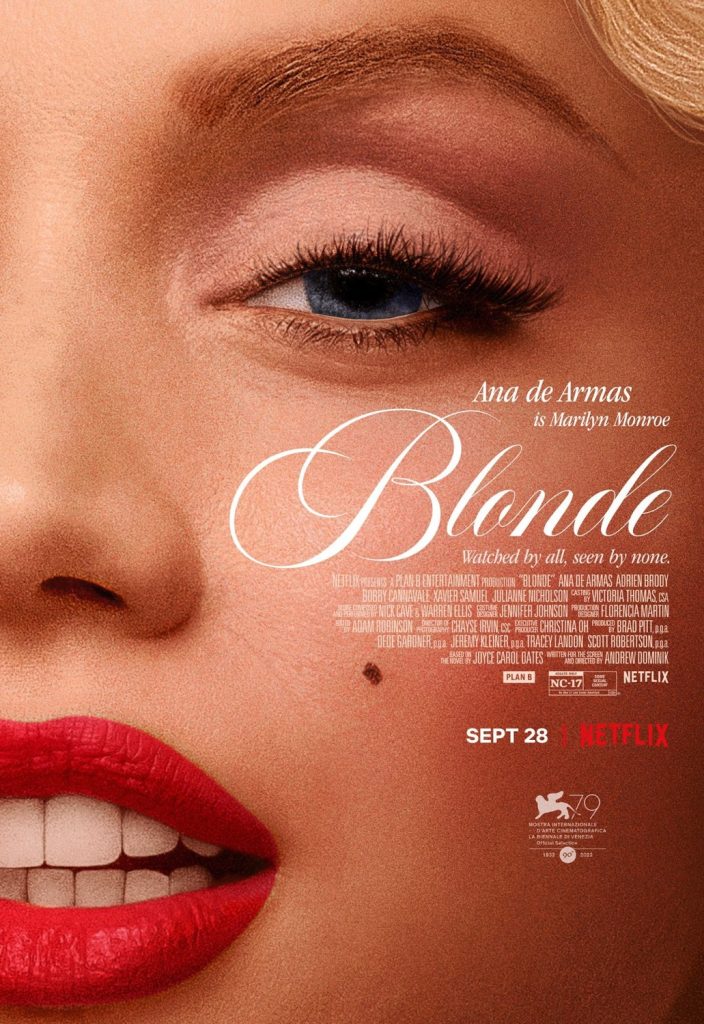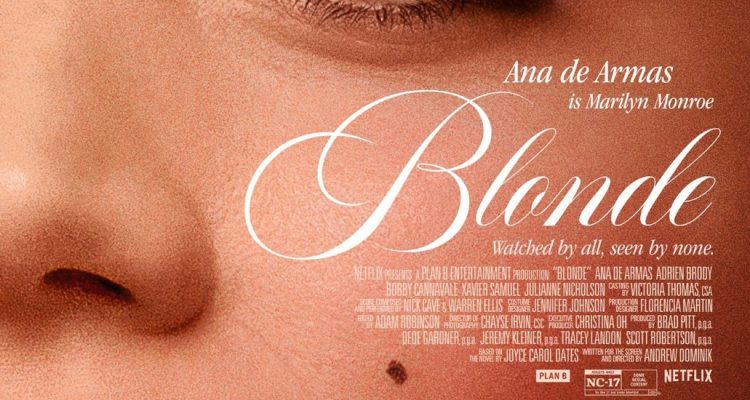Director and writer Andrew Dominik’s fictional examination of Marilyn Monroe’s life, “Blonde,” is based on the Joyce Carol Oates’ novel of the same name. After a scene stealing turn in “No Time to Die” and “Knives Out,” actress Ana De Armas is primed for a career defining moment with “Blonde.”
Dominik’s script shows the audience Norma Jean Baker over the decades, starting with her ghastly traumatic childhood. A young Norma Jean (played by Lily Fisher) is constantly terrorized by her mentally unwell mother, Gladys (played brilliantly by Julianne Nicholson).
One unforgettable sequence finds Gladys in a manic state and driving Norma Jean toward the raging wildfires in the Hollywood Hills. It’s a stunning sequence from the gripping visuals to great acting on the part of Fisher and Nicholson.
Soon after that, Norma Jean is taken in by a neighbor couple who reported the mother. Not soon after her arrival, Norma Jean is dumped into an orphanage. It’s a life that seems to be destined for pain… and Dominik doesn’t blink as he takes the audience there.
Cuban star Ana de Armas arrives early in the film, taking over for actress Lily Fisher and never letting go of the spotlight. De Armas is absolutely intoxicating onscreen, whether she’s channeling her sex appeal for an adventurous menage a trois or raining down tears while delivering an emotional audition to a stunned audience of executives. De Armas is should be praised for her work here, despite the script’s repetitive beats and limiting arc.
Dominik finds a way of finding tragedy in every frame, even when De Armas is portraying Marilyn at the pinnacle of her career. Some viewers might be left wondering if this film might more aptly be named, “The Unbearable Weight of Massive Talent.”
Marilyn, or in this case Norman Jean, finds some level of happiness in her fictional open relationship with Edward G. Robinson Jr. (Evan Williams) and the enthralling figure, Charlie Chaplin Jr. (Xavier Samuel). The boys seek to open Marilyn’s mind and explore each other in the process.
After a rather frame-bending and psychedelic love-making sequence, the trio speak about how both “juniors” (Chaplin Jr. and Robinson Jr.) hate being the product of famous fathers. Norma Jeane seems confused, she envies them in that they know who their father is. It’s a nice way to circle back to Norma Jean’s burning desire to know her father. This theme is revisited less effectively throughout the rest of the film.
Toward the middle and end of the film it becomes more and more difficult for Marilyn to be “Summoned” by Norma Jean. There’s a powerful scene where de Armas tries to summon Marilyn’s cheery persona in front of a mirror (reminiscent of Margo Robbie’s tearful mirror scene as skater Tonya Harding). This sequence highlights the frailty of Marilyn in her later years, much better than the montages of pill popping that populate the final act.
Dominik makes every effort to show Monroe’s beauty even in her downward spiral. Ultimately, the final act could’ve been shortened and audiences will struggle with this depiction of a woman so well known.
Letter Grade: B-



